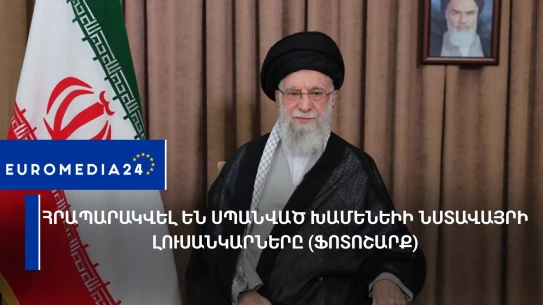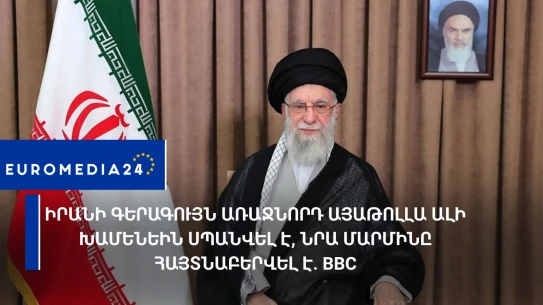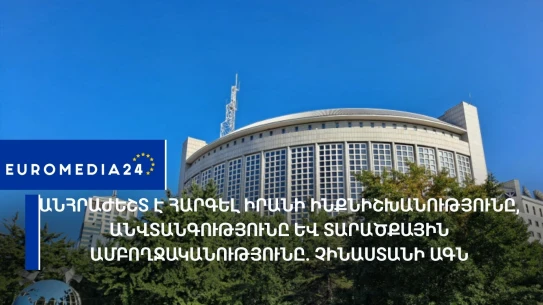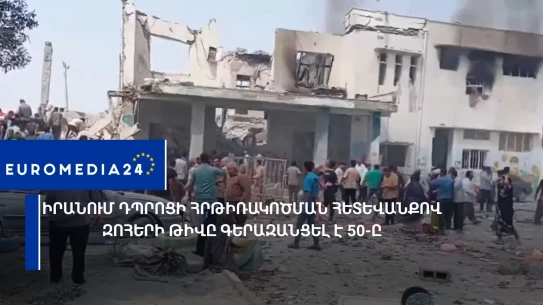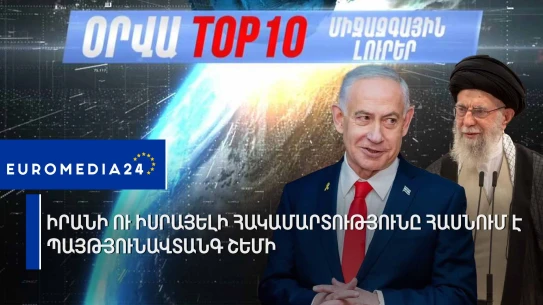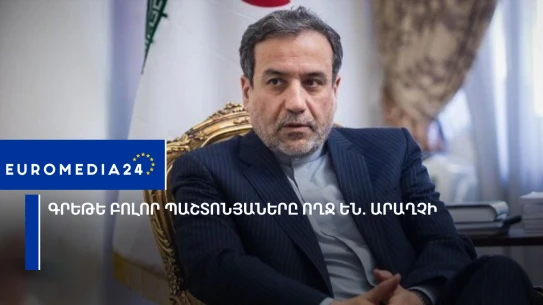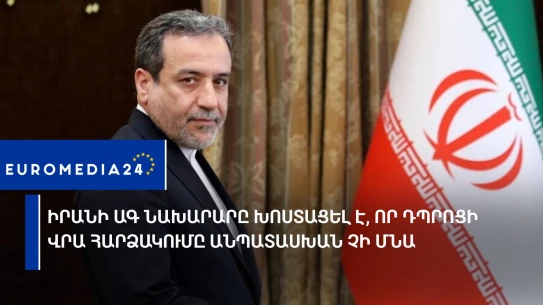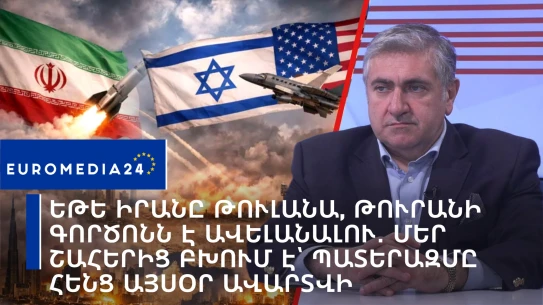Armenia believes that by enshrining the principles of the Alma-Ata Declaration of 1991 in the peace treaty being discussed with Azerbaijan, it is possible to put an end to the long-term conflict and establish long-term peace in the South Caucasus. OurAccording to reports, RA Minister of Foreign Affairs Ararat Mirzoyan said this during a press conference with the Minister of Foreign Affairs of Malta, OSCE Chairman-in-Office Ian Borg.Mirzoyan said that during the meeting with the Foreign Minister of Malta, they discussed the security of the South Caucasus. "I presented to my colleague the current situation in the South Caucasus, the developments in the last stage of the negotiations between Armenia and Azerbaijan, including the details of the negotiations held in Almaty. In this context, I emphasized the agreement made by the border demarcation and border security commissions of the two countries on April 19 that the political basis of the border demarcation process should be the Alma-Ata declaration of 1991. This agreement was, of course, a reaffirmation of the position expressed by the Prime Minister of Armenia and the President of Azerbaijan on different platforms. position that the Declaration of Alma-Ata should be the basis of the process of mutual recognition of territorial integrity and delimitation of the two countries. For the first time, the Prime Minister of Armenia and the President of Azerbaijan agreed on this in Prague in 2022 and after that they had the opportunity to reaffirm this principle on various platforms. And we are convinced that by fixing this principle in the peace agreement and signing the peace agreement, this long-standing conflict can be put to an end and a stable and long-lasting peace can be established in the region," said the Minister of Foreign Affairs of the Republic of Armenia.Ararat Mirzoyan said that an important component of peace is also the unblocking of transport communications in the region, regarding which Armenia presented its vision with the "Crossroads of Peace" project. "We are not only ready, but also interested in re-establishing transport communication, in particular, in the first stage, railway communication with Azerbaijan, of course, understanding that all infrastructures will remain under the sovereignty of the countries through whose territory they pass, will act according to the jurisdiction of these countries and, of course, the regulations will be mutual and in accordance with the principle of equality," said the RA Foreign Minister.
Mirzoyan added that in the context of geopolitical developments, the OSCE is facing serious challenges, and these challenges require all participating states to address existing problems with the effective use of the organization's tools and mechanisms in the OSCE area of responsibility. According to him, it is the provision of a comprehensive, inviolable and cooperative security concept that is at the basis of the creation and operation of the OSCE.
"The South Caucasus is not free from serious challenges, and these in turn violate such key principles as territorial integrity and sovereignty of states. These are challenges that are directly related to the OSCE mandate and emphasize the importance of the structure's targeted involvement," Mirzoyan noted.
The Minister of Foreign Affairs of Armenia said that during the meeting they exchanged ideas on relations between Armenia and Malta, stressing that Armenia values relations with Malta and is ready to make active efforts to deepen those relations.
















